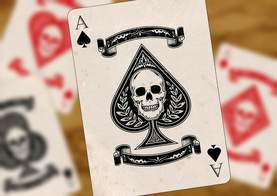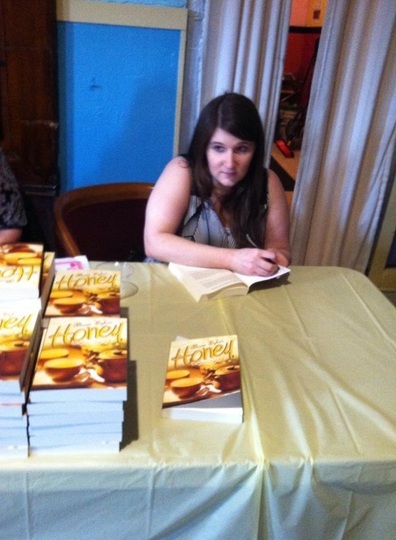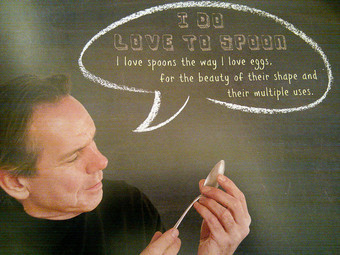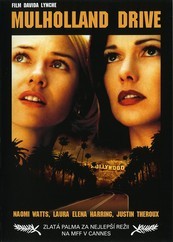Alison Lyke's Blog, page 7
October 18, 2018
The Playmate
Sometimes...he’d stand on the hill across the street, staring at my front door for hours, waiting for my son to get back.
 by Alison Lyke
by Alison LykeAs relieved as I was to move from an urban area into the suburbs, I was concerned that my son had lost his neighborhood friends. Single childhood is precarious and lonely, even for the well adjusted.
There were new friends to be had in our little condo community, but our son didn’t really take a shine to anyone until the new next-door neighbors moved in, about a month after us. There were two moms and a baby girl, it seemed, I didn’t notice the little boy until our son encountered him on a bike ride.
“He lives right next store. Isn’t that cool!” my son said.
Perfect. I was glad to solve the mystery of why a couple and baby needed such a large condo. The two boys spent many hours running around the complex, lost in a haze of semi-unsupervised boyhood adventure.
Then, his new playmate started coming around a lot more, but he never came inside. The kid had a knack for ringing the doorbell just as I was the most busy. When I opened the door, he always asked, “Is he there?”
Often, he was not. My son participated in several afterschool activities and he did have other friends in other neighborhoods.
Sometimes, the little boy would say, “I’ll wait until he’s home.” Then he’d stand on the hill across the street, staring at my front door for hours, waiting for my son to get back.
I thought I might just not answer the doorbell when my son wasn’t in, which turned into a huge issue. The boy would ring the doorbell relentlessly until I answered. I thought, maybe I should talk to his moms, but they didn’t seem to be home very much. The boy was often alone in the afternoons before they came home from work.
One morning, on the way to an early meeting, I drove past the bus stop and noticed that my son’s playmate wasn’t there with the other children.
“Is your friend sick?” I asked later that afternoon, hoping for a few days respite from the doorbell.
“He’s never at school. I think he’s homeschooled.”
I mentally rolled my eyes. That explains why he’s so lonely.
A few nights later, I was startled awake by the boy’s ring. It was around one a.m.
“Is he there?” the boy asked when I swung open the door.
I sent him on his way, making sure I saw him go into his own house. I resolved to talk to his parents as soon as I could. The next morning, he was standing on the hill, watching my son as he left for school.
Around noon, I started out to speak with his parents, but they were loading up a moving truck. Well, that takes care of that. The poor kid was just having anxiety about moving, and missing his friend.
But, why live someplace only five months? Why pack up and move so often, and with the little baby girl in tow?
“I’m sorry your friend moved,” I told my son that evening.
“Yeah,” he shrugged, “I guess.”
Several days later, the doorbell rang. I knew that insistent ring, it wouldn’t be anyone else.
“Is he there?” His playmate asked.
I nodded yes and watched as my son ran off to play with the boy.
"I thought your friend moved,” I said over our dinner last night, an unambitious, mid-week, tuna casserole.
“He didn’t,”
“I looked in his condo. It’s all emptied out. No furniture or curtains. I watched his moms load up their van.” I said, starting to feel nervous.
“Well, he does still live there. He said has lived there for a long time, and he probably will live there forever.” My son said.
I’m shaking while I type this. It’s almost one a.m. I’m not sure what I’m going to do when the doorbell rings.
Published on October 18, 2018 09:40
July 18, 2018
Ace of Snakes
NYC Midnight Flash Fiction Challenge #1 A special agent enlists a comedienne to covertly deliver a flash drive to a group of Tibetan monks.
 In the empty club, with its stage curtains drawn, and its smell of floor polish not yet trodden to oblivion by the footfalls of three hundred patrons, Victoria sat at one of the clean, white, linen-covered tables with her arms folded across her chest, perhaps to keep her heart from beating right out of her rib cage.
In the empty club, with its stage curtains drawn, and its smell of floor polish not yet trodden to oblivion by the footfalls of three hundred patrons, Victoria sat at one of the clean, white, linen-covered tables with her arms folded across her chest, perhaps to keep her heart from beating right out of her rib cage.
A man strode across the floor and sat opposite Victoria. He had an unkept beard, jeans with tears in the knees, and he wore a denim jacket over faded tee-shirt that said Party Time.
“Victoria Robin? I’m Special Agent Brian Dicus,” he said but did not extend his hand.
“Excellent,” Victoria said. Her voice shaking, she tried to crack a crooked smile.
“What?” Brian asked.
“You know, ‘Party time, excellent,” Victoria pointed to his shirt.
“I’m undercover,” he explained as he removed a pack of playing cards from his jacket pocket. He pulled out a card and slid it over the table with two fingers.
Victoria picked up the card and studied it. It looked like the ace of spades, but instead of a spade, there was a dark green cobra head at the center of the card.
“Ace of snakes,” Victoria said.
“It’s a flash drive packed with sensitive information,” he said.
Victoria held the card up to the light and saw the glint of the computer chips in the cobra’s two eyes.
“At tonight’s show there will be a contingent of three high ranking Tibetan officials,” Brian continued while Victoria inspected the flash drive, “you’ll easily recognize them because they are monks and will be dressed as such. It doesn’t matter which of the three you slip the card to, they will all be expecting it.”
“And then?”
“Once the drive is safely in the hands of the Tibetans, your assignment will be complete and all of the charges will not only be dropped, but erased from the records. As if it never happened.”
“Perfect. Anything else?” Victoria asked.
“Tell me a joke,” Brian demanded.
“I’m not that kind of comedian. I tell funny stories.”
“A funny story then,”
Victoria paused, pulled her fire red hair back from her copper colored, almond eyes and said, “A few weeks ago I went on a blind dinner date with this guy. When we got to dessert, he kept staring at my tits; so, finally I say ‘hey buddy my eyes are up here.’ It turns out he was staring at a huge glob of ice cream that I had slobbered all over my chest,” Victoria paused for effect “Well, at least my dessert got to third base,” she finished.
Brian was stone faced. Victoria snatched the card pack from the table and tucked the Ace of Snakes into it.
“There’s no accounting for taste,” she said.
The All Suits Comedy club usually tailored to diverse upper middle class customers and those aspiring to be upper middle class with an over-budget night out. The patrons were moderately well dressed, rowdy, and relaxed by the club’s expensive spirits and light fare. During Victoria’s set she noticed the Tibetan contingent tucked into a the back corner of the club, wearing orange and white robes, their heads shaved and their table bare, aside from a pitcher of water.
She rushed through her comedy routine, barely noticing when the audience laughed or when a punchline fell flat. The pack of cards sat heavily in the hind pocket of her jeans and more than once she reached back and absentmindedly touched it. When Victoria left the stage, Frank, a lanky fellow comedian, who wore his pet ball python around his neck like a slithery boa, stopped her in the wings and asked why she kept scratching her butt through her performance. He also had a message for her,
“Some scrub friend of yours grabbed me on my way into the club and told me to give this to you,” Frank pressed a crumpled note in Victoria’s hand and took a moment to pet Bertha before they walked on stage.
It read: Count the Monks
Victoria waded into the crowd and counted the monks as she navigated through the tables. There were four monks instead of the three that Brian had described. Hot blood pounded into Victoria’s head, blurring her vision and beating in her ears as she tried to puzzle through the conundrum.
One of them must be undercover and not a real monk, Victoria thought, and he can’t be trusted. Why else would Brian warn me?
Victoria pulled an extra chair over to the monks’ table, while, on stage, Frank told his opening joke, something about how his python is even bigger than Bertha.
“Hello gentlemen,” Victoria said and each of the monks nodded to her in turn.
“I love monks, you know,” Victoria said, “but they don’t love me. I sometimes bartend and I meet all types. Three monks once walked into my bar and ordered martinis. I said, ‘hey fellas, how’d you like your martinis served’ and one monk answered, ‘in silence.”
When she finished speaking, Victoria leaned in and closely studied the faces of the monks. Not finding what she was looking for, she leaned back and tried again,
“I’ve heard that monks are so spiritually in tune that they can go an incredibly long time without eating. One famous monk set out to learn how to fast for months at a time, but he died in the process. At his funeral, his master said it was such a shame that he died just when he had learned how to not eat.”
This time all of the monks laughed except the one on the far left. He remained stone faced. Victoria pulled the card deck from her pocket, removed the Ace of Snakes and handed it to one of the laughing monks. She narrowed her eyes at the last monk on the left and said,
“There’s no accounting for taste.”
 In the empty club, with its stage curtains drawn, and its smell of floor polish not yet trodden to oblivion by the footfalls of three hundred patrons, Victoria sat at one of the clean, white, linen-covered tables with her arms folded across her chest, perhaps to keep her heart from beating right out of her rib cage.
In the empty club, with its stage curtains drawn, and its smell of floor polish not yet trodden to oblivion by the footfalls of three hundred patrons, Victoria sat at one of the clean, white, linen-covered tables with her arms folded across her chest, perhaps to keep her heart from beating right out of her rib cage.A man strode across the floor and sat opposite Victoria. He had an unkept beard, jeans with tears in the knees, and he wore a denim jacket over faded tee-shirt that said Party Time.
“Victoria Robin? I’m Special Agent Brian Dicus,” he said but did not extend his hand.
“Excellent,” Victoria said. Her voice shaking, she tried to crack a crooked smile.
“What?” Brian asked.
“You know, ‘Party time, excellent,” Victoria pointed to his shirt.
“I’m undercover,” he explained as he removed a pack of playing cards from his jacket pocket. He pulled out a card and slid it over the table with two fingers.
Victoria picked up the card and studied it. It looked like the ace of spades, but instead of a spade, there was a dark green cobra head at the center of the card.
“Ace of snakes,” Victoria said.
“It’s a flash drive packed with sensitive information,” he said.
Victoria held the card up to the light and saw the glint of the computer chips in the cobra’s two eyes.
“At tonight’s show there will be a contingent of three high ranking Tibetan officials,” Brian continued while Victoria inspected the flash drive, “you’ll easily recognize them because they are monks and will be dressed as such. It doesn’t matter which of the three you slip the card to, they will all be expecting it.”
“And then?”
“Once the drive is safely in the hands of the Tibetans, your assignment will be complete and all of the charges will not only be dropped, but erased from the records. As if it never happened.”
“Perfect. Anything else?” Victoria asked.
“Tell me a joke,” Brian demanded.
“I’m not that kind of comedian. I tell funny stories.”
“A funny story then,”
Victoria paused, pulled her fire red hair back from her copper colored, almond eyes and said, “A few weeks ago I went on a blind dinner date with this guy. When we got to dessert, he kept staring at my tits; so, finally I say ‘hey buddy my eyes are up here.’ It turns out he was staring at a huge glob of ice cream that I had slobbered all over my chest,” Victoria paused for effect “Well, at least my dessert got to third base,” she finished.
Brian was stone faced. Victoria snatched the card pack from the table and tucked the Ace of Snakes into it.
“There’s no accounting for taste,” she said.

The All Suits Comedy club usually tailored to diverse upper middle class customers and those aspiring to be upper middle class with an over-budget night out. The patrons were moderately well dressed, rowdy, and relaxed by the club’s expensive spirits and light fare. During Victoria’s set she noticed the Tibetan contingent tucked into a the back corner of the club, wearing orange and white robes, their heads shaved and their table bare, aside from a pitcher of water.
She rushed through her comedy routine, barely noticing when the audience laughed or when a punchline fell flat. The pack of cards sat heavily in the hind pocket of her jeans and more than once she reached back and absentmindedly touched it. When Victoria left the stage, Frank, a lanky fellow comedian, who wore his pet ball python around his neck like a slithery boa, stopped her in the wings and asked why she kept scratching her butt through her performance. He also had a message for her,
“Some scrub friend of yours grabbed me on my way into the club and told me to give this to you,” Frank pressed a crumpled note in Victoria’s hand and took a moment to pet Bertha before they walked on stage.
It read: Count the Monks
Victoria waded into the crowd and counted the monks as she navigated through the tables. There were four monks instead of the three that Brian had described. Hot blood pounded into Victoria’s head, blurring her vision and beating in her ears as she tried to puzzle through the conundrum.
One of them must be undercover and not a real monk, Victoria thought, and he can’t be trusted. Why else would Brian warn me?
Victoria pulled an extra chair over to the monks’ table, while, on stage, Frank told his opening joke, something about how his python is even bigger than Bertha.
“Hello gentlemen,” Victoria said and each of the monks nodded to her in turn.
“I love monks, you know,” Victoria said, “but they don’t love me. I sometimes bartend and I meet all types. Three monks once walked into my bar and ordered martinis. I said, ‘hey fellas, how’d you like your martinis served’ and one monk answered, ‘in silence.”
When she finished speaking, Victoria leaned in and closely studied the faces of the monks. Not finding what she was looking for, she leaned back and tried again,
“I’ve heard that monks are so spiritually in tune that they can go an incredibly long time without eating. One famous monk set out to learn how to fast for months at a time, but he died in the process. At his funeral, his master said it was such a shame that he died just when he had learned how to not eat.”
This time all of the monks laughed except the one on the far left. He remained stone faced. Victoria pulled the card deck from her pocket, removed the Ace of Snakes and handed it to one of the laughing monks. She narrowed her eyes at the last monk on the left and said,
“There’s no accounting for taste.”
Published on July 18, 2018 11:19
February 23, 2018
Why do I gravitate toward man versus the gods stories?
 Tablet V of the Epic of Gilgamesh There was once a king who was so evil that the gods created a wild, beast of a man to keep the king in check. After an initial scuffle, instead of fighting, the king and wild man teamed up and attacked the gods themselves. As you may imagine, they fared poorly. This is the story of the Epic of Gilgamesh, the oldest piece of literature on record.
Tablet V of the Epic of Gilgamesh There was once a king who was so evil that the gods created a wild, beast of a man to keep the king in check. After an initial scuffle, instead of fighting, the king and wild man teamed up and attacked the gods themselves. As you may imagine, they fared poorly. This is the story of the Epic of Gilgamesh, the oldest piece of literature on record.
Many of these ancient stories, the Odyssey, for example, tell tales of man versus gods, and it’s always gods in the plural because back then there were gods of each aspect of life and not a god of all. A man might win against a god, eventually, but he will always lose something of himself in the battle, for better or for worse. I wanted to repeat this kind of tale, in my own way with my own gods, in my last novel.
In my upcoming book, men, well, mostly women, are again fighting the gods, but these deities are a man-made side-effect of a world altering technology, and are not quite aware that they are gods. I wrote this with an eye on the Zuckerburgs and the Gates of the world who certainly did not seek to bend the fabric of our reality, are not great philosophers or ethicists, and yet, by virtue of the technology they created, make decisions that control the fates of individuals and, arguably, nations.
Why do I gravitate toward man versus the gods stories? I’m Buddhist, so my god is amorphous, singular, and often not quite a god. I’d like to say that it’s because this type of story is the ancient cornerstone of narrative, but I’m not actually that fancy. I think it’s because I like the idea of being able to act against what fate, or the gods, or the universe, or just life has dealt us, however lowly or futile our actions might play out.
I know what it feels like to be a victim of random misfortune; worse, I know what it’s like to have sorrow heaped on top of sorrow until it feels like I may be crushed to death. Sometimes, it feels like the primitive gods are real and they all have a personal vendetta against me. I fight sorrow on a personal level with everyday actions: meditation, family support, work, and self-care. But, I can use my stories to seek vengeance, with the hope that I fare better than Gilgamesh.
Published on February 23, 2018 09:06
February 16, 2018
Exciting Progress on the Novel Front
 I finished my second novel a few weeks ago. It’s about a future where the minds of the dead are stored digitally in a computer system, known as the Node. I set out to finish writing the novel in about two years, because that’s how long it took me to write my last book, Honey. But, my brother died and things got complicated. As Vonnegut says, “And so it goes…”
I finished my second novel a few weeks ago. It’s about a future where the minds of the dead are stored digitally in a computer system, known as the Node. I set out to finish writing the novel in about two years, because that’s how long it took me to write my last book, Honey. But, my brother died and things got complicated. As Vonnegut says, “And so it goes…”This book means a lot to me. I think I took a little extra time finishing up because I love the characters so dearly. We lived together for five years and I wasn’t quite ready to leave them. I must remember that they are immortal in two ways. First, all characters are immortal because they are born again every time we turn the page. Second, in the world I created for them, everyone lives forever, albeit with varying degrees satisfaction.
The manuscript is going into editing with my friend and editor, Patty from the Write Writing. I’ve chosen a unique artist for the cover art. My plan, since my previous publisher is defunct, is to enter it into the Kindle Scout program. I’m going to put it through a round of the agent/publisher circuit, if that doesn’t work.
With Honey, I strove to be published, which I saw as legitimization. With everything I’ve been through, I was just happy to finish Forever People. I hope that other people read it, like it, and it brings them joy, but, I’m less concerned about how people read it.
Published on February 16, 2018 12:28
November 14, 2016
Knowledge Hostage
by Alison Lyke
I woke up seven minutes before the alarm went off. I stared at the barred windows. In between the slats glowed a grey, treeless morning sky.
“Good morning. You are not in prison,” my alarm said in a soothing, recorded voice, paused and the repeated, “you are not a prisoner,” until I turned it off. Moments later, my counselor, Angela, appeared in my door frame. She did not knock.
“You ready? Are you getting up?” She asked, my eyes drifted from her high, blonde ponytail to the Glock 22 in her hip holster.
“Breakfast,” she was no longer asking. I nodded. I opened my small set of corrugated wood drawers and pulled out my yoga pants and a cardigan. I can wear my own clothes. I am not in prison.
I ran into one of my favorite ladies in line for my powdered eggs, orange juice from concentrate, and my choice of white, rye or wheat toast. Margie was kind, and round, and optimistic that she could go home someday.
“There’s a new man here and he’s about your age,” she smiled knowingly. She was hopeful that I’d find someone in here and join her and Stan in the couple dorms, “He’s in rough shape though, you know.”
Fantastic. A brand new broken toy all for me. I didn’t see anybody new in the cafeteria, so I headed out into the lawns. I walked past one of the two whole families that we had in here. A husband, wife, teenage daughter, and an elementary school-aged son were eating at a picnic table. The kids were allowed fresh fruit that gave me a twinge of longing. I bet it was the teenage girl that got them in here. I know that there are whole facilitates just for teens, but she must have done something to put her whole family in danger.
I saw my new broken toy at the farthest picnic table looking every bit as damaged as Margie had promised. He had recently been beaten and it seemed that whoever it was took care to do most of the damage to his face. He was facing the eight-foot metal fence that ran around the facility.
I asked, sitting across from him in a way that forced him to turn all the way around and look at me.
“I can’t swallow. They stepped on my neck,” At least he said it with authority and didn’t cry. There were a lot of criers. Not that I blame them. I noticed that he was very clean even though he was wounded. His clothes were neat and there was no blood under his fingernails.
“Why are you here?” He asked after looking me over as well. I wonder what he saw. Probably my messy hair, my tired eyes, and my unnecessarily warm, worn cardigan.
“I ran a dog fighting ring,” I said in the isn’t-that-funny-but-not-really voice that I always use when discussing my situation.
“Why are you really here,” he dismissed me.

"Good morning. You are not in prison" “Oh, we only talk about that in counseling sessions. People get too upset,” I paused, hoping I wouldn’t have to ask, “Why are you here?”
“I’d rather not say,” he looked down at his nails.
Pedophile or rapist I thought. Probably a pedophile because, at this point, most people would cop up to being labeled a rapist.
A small wave of counselors left through the facility’s front door and Angela headed towards our table.
“What’s this” he asked me.
“There must be protesters at the first gate. Sometimes they break through and shoot at us. The councilors are rounding us up,”
Angela beckoned me, knowing that I didn’t have to be told. My broken toy and I walked back up the hill together.
“Not to be mean or anything,” I told him, “but this protest is probably your fault. It sounds like you’ve done something pretty awful.”
He was suddenly scathing and I saw the man underneath the swelling and the bruises, “Let’s not get funny. None of us have done anything.”
He was right, but I couldn’t have that discussion again. I have had it hundreds of times, with strangers and with family members, but not with the people in here because we all just know.
A year ago I got a raise at work and I could finally afford an apartment in the suburbs that allowed dogs. I always wanted a dog, but my parents only let us have small animals. Growing up I had a succession of hamsters, then a turtle, and finally a frog. None of them offered the tangible companionship that I saw in dogs.

"It’s just a picture that says that you abuse dogs." As soon as I was settled into my new apartment, I headed to the shelter and rescued a corgi. He came with the name Sebastian, but I changed it to Franklin, then shortened it to Frank. If there was any real mistake I made, it was buying just a leash and collar for Frank. I should have bought a harness because Frank was a runner and a fighter. When he would run at other dogs at the park, I’d have to pull up on his leash and his collar would lift up, choking him. I soon figured out that a harness would solve this problem, but it was too late. Someone had taken my picture pulling up on Frank’s leash.
The first post I was a picture of me pulling up on Frank’s leash. It looked horrible, like I was really hurting him. Whoever took the picture captured a moment where I somehow looked happy to be tugging on Frank’s neck. The caption said, “If you find this animal abbuser [sic] please detain her and call the police.”
An aquatinted sent the meme to me and I cried. I posted my very first explanation of what was going on when the picture was taken. The only thing I succeeded in was identifying myself so that I could be targeted some more. The stories and pictures came in a flood. There were manipulated photographs of me standing amid violently abused dogs. The worst was a photo of a woman who looked kind of like me taking bets in a dog fight between two Corgis.
There was news casting me as a suburban mom making gobs of money from my underground dog fighting rings. It didn’t matter that I was single with no children.
My mother, scared and confused, called and asked why the national news was reporting that I abused dogs.
“Don’t just read the story on social media,” I told her, “go to the actual website where it’s posted and look around. These websites try to look official. They mix real news with fake stories. Once you’re on the site, look for clues that let you know if the website is official. Read the About Us page or find the Contact information,”
“Why are they doing this?”
“Because outlandish fake stories get people to read their websites and they get paid per person that they can get to go to their page or website,”
“What about these pictures,” my mom asked, “I can’t prove that they are fake because there’s nothing to click on. It’s just a picture that says that you abuse dogs,”
Fake memes were hard to explain to my mom. The people making them hope that people will just read, believe, and keep scrolling. My mother doesn’t quite understand how the Internet works. She still posts those silly social media disclaimers: by this statement, I give notice to my social media account that it is strictly forbidden to disclose, copy, distribute, or take any other action against me based on this profile… She has never bothered to check on the legitimacy of social media posts before and was just realizing that anyone can post anything.
 Then, someone found my information and made it public. My apartment was vandalized, protesters stood around my place of work. The police tried to help, but how can you fight something so random, so amorphous.
Then, someone found my information and made it public. My apartment was vandalized, protesters stood around my place of work. The police tried to help, but how can you fight something so random, so amorphous.I was on my way to meet a friend at a restaurant, sitting at a red light, when someone threw a brick through my car window, knocking me unconscious. My car drifted into oncoming traffic and I almost died. That was when I petitioned for protection.
Now, I live here in a protectoral facility. I am not in prison. There are a lot messages about how we didn’t do anything wrong. We’re not allowed access to social media, which is understandable.
I hear gunshots as Angela hustles us into the facility. It sounds like the protestors have breached the first gate. Sometimes, I hope that they will breach the second gate and put an end to my quarantine.
Pay no attention to what the clock says in the morning or the friendly smiles of the counselors. This is a prison. The people outside the gate are not our only captors. We are held prisoner by the constant, unrelenting spread of deceptions and there is no end in sight.
Published on November 14, 2016 08:45
June 12, 2014
Adventures in Book Signing
A tale of general anxiety, mud, and Heinz. I was profoundly afraid. I don’t like being in front of a lot of people, and I especially don’t like acting like a big deal. Both are required for book signings.
Ignoring my fear and determined to be very early, I loaded up my car with some snacks for the reception and I headed over to my mother’s to pick her up. My mother’s house has a notoriously perilous driveway, it’s steep, curvy, and it floods during rainstorms.
It must have been my nerves, because, that day, I forgot all about the dangers of the driveway. I pulled down it, honked my horn, and backed up so that I could get a running start up the steep incline.
I felt half of my car slip off of the driveway and into the adjacent muddy lawn. I tried to pull forward, and I couldn’t. I tried to back up; that wasn’t going to happen either. I was on the way to the biggest day in my literary career, and my dumb car was stuck in my mom’s stupid driveway.
We pushed, and rocked, and put it in neutral and we only managed to make it sink in so much deeper that the wheels on the unstuck side hovered several inches over the ground.
A truck backed down the driveway. Assuming it was one of my brother’s friends who had somehow failed to gauge the dire situation in the driveway, I shouted at him to shove-off, with some other choice words.
It wasn’t an idiot friend of my brother; it was a stranger named Heinz who was there to save the day. Heinz had seen the predicament and, like some Batman for cars, had all the toys to save the day.
While Heinz and my brother hooked a winch up to my car, I grabbed a copy of Honey and signed it for Heinz, thanking him for his help. After it was towed to safety, I drove my mud-caked car to my book signing.
I read some experts, signed some books, and ate some snacks (pictured below). I think the whole ordeal actually made me calmer than I would have been otherwise, having spent all my anxiety on my stuck car.



Ignoring my fear and determined to be very early, I loaded up my car with some snacks for the reception and I headed over to my mother’s to pick her up. My mother’s house has a notoriously perilous driveway, it’s steep, curvy, and it floods during rainstorms.
It must have been my nerves, because, that day, I forgot all about the dangers of the driveway. I pulled down it, honked my horn, and backed up so that I could get a running start up the steep incline.
I felt half of my car slip off of the driveway and into the adjacent muddy lawn. I tried to pull forward, and I couldn’t. I tried to back up; that wasn’t going to happen either. I was on the way to the biggest day in my literary career, and my dumb car was stuck in my mom’s stupid driveway.
We pushed, and rocked, and put it in neutral and we only managed to make it sink in so much deeper that the wheels on the unstuck side hovered several inches over the ground.
A truck backed down the driveway. Assuming it was one of my brother’s friends who had somehow failed to gauge the dire situation in the driveway, I shouted at him to shove-off, with some other choice words.
It wasn’t an idiot friend of my brother; it was a stranger named Heinz who was there to save the day. Heinz had seen the predicament and, like some Batman for cars, had all the toys to save the day.
While Heinz and my brother hooked a winch up to my car, I grabbed a copy of Honey and signed it for Heinz, thanking him for his help. After it was towed to safety, I drove my mud-caked car to my book signing.
I read some experts, signed some books, and ate some snacks (pictured below). I think the whole ordeal actually made me calmer than I would have been otherwise, having spent all my anxiety on my stuck car.



Published on June 12, 2014 08:46
May 17, 2013
Coveting and the Fiend
By Alison Lyke
 New York had just turned cold for the winter, but dry, so that everything smelled like copper.
New York had just turned cold for the winter, but dry, so that everything smelled like copper.
“Are you really standing there?” Robert asked, reaching out to touch, but Maggie recoiled, crossing her arms. Robert’s fingers just brushed the edge of her coat.
“Don’t get poetic. Of course I’m here.”
“I- I dreamed of you over and over. And you always look the same.”
Maggie stared at him for a long moment, his sharp features, his long brown hair pulled back and tucked under his ski cap. She might have fallen into him then, she could have taken one step forward. She stopped herself.
“Jesus Christ, are you kidding me.” Maggie pulled her arms even tighter, wishing she could fold inside her own body, “I’m leaving.” She turned and her heels clicked away down the alley.
He watched her auburn hair flutter behind her.
“So what? It’s been seven years Maggie. When are you going to fix me?”
Maggie continued to hustle away, her head bowed against another copper scented gust.
“I love you.” Robert said quietly, bitterly.
She turned and rushed toward him, all fury and fingernails. She meant to claw his face, but he cowered too quickly. Instead she beat at him with her heavy, yellow sack of a purse. She meant every blow.
Maggie shouted and punctuated each shout with a blow to either side of the man’s head, “Don’t say you love me! I don’t care!”
“Please, please.” He begged back, “Please.”
“Hey lady! Stop it over there!” A heavily scarved woman shouted from across the street. She pulled her young son to her other side, ensuring he no longer had a clear view of Maggie beating Robert with her purse.
Maggie pulled back, took a deep breath and smoothed her fiery locks.
“Are you going to hit me again?” Robert asked sheepishly.
“No.” Maggie huffed, “Just don’t ever say you love me anymore. I’ve heard it enough.”
“I haven’t seen you in two years, and it’s the same. I feel like I just saw you yesterday. I’m mean, I’m doing okay, but sometimes it gets bad. My memories of you are like drinking lemonade right after you bite your tongue.”
Maggie looked at him with a mix of shock and mild pity.
“What’s it like for you Maggie?” He asked her.
She shook her head, “Not like that.”
Robert looked at her with mounting hunger, “Please.”
Maggie pulled the covers up over her small breasts, but when she bent to look at Robert, the blanket slipped and uncovered her again.
“Always tears.” She said flatly.
“I’m just happy.” Robert sighed, “We haven’t slept together in four years.”
“No,” she reached across from him to grab a glass of water from his bedside stand. “You’re crying because part of you hates me.” She sipped the water, which was a few days old, lukewarm and unsatisfying.
“I could never hate you.” He choked.
“If I were you, I would hate me. What I’ve done to you is a kind of rape, Robert. Don’t you get it? It’s rape that makes you love your rapist. If I were you, I’d murder me.”
Robert lay silent, lips pressed together, glaring at his ceiling. Maggie pushed his shoulder roughly.
“Hello. Are you in there? Somewhere in there is a man who said he would never be with me. A man who would sleep with every single woman in the room except for me.” She shook him again, even harder, “Are you in there! Where are you, Robert?”
He rolled over to face her, “Can we go again?” He asked.
“No, not again,” she said, “It’ll be seven years tomorrow, so, probably never again.”
 Maggie’s apartment was on a third floor with too many steps up and a few extra for good measure. She kept her curtains closed and locks locked, often checking to make sure that they hadn’t suddenly become unturned.
Maggie’s apartment was on a third floor with too many steps up and a few extra for good measure. She kept her curtains closed and locks locked, often checking to make sure that they hadn’t suddenly become unturned.
On the coffee table in front of her was a strongly sweet smelling poultice, which she rubbed on a black and red candle. This candle was molded to look like two lovers embracing, with a wick sprouting from each head. After she rubbed the candle, she took the herb mixture and smoothed it over her own lips. Around the lovers candle were seven onyx stones that seemed to suck at the flames when Maggie lit the wicks.
Maggie spoke aloud. Her voice felt small and ineffectual inside the flame lit room.
“Hello, if you’re there Orm'unt'o I’d like to talk to you about taking it away.”
Nothing happened, save a slight flicker of one of the red flames.
“You said at three years to try again at seven. It’s been seven years to the day, to the hour.” She paused, then called “Orm'unt'o,” into the night.
Two, glowing, violet slits of eyes opened in the blackness, yards past the candle’s flames.
“Margret, Margret you still lonely?” The genie whispered in a thick accent, gentle and hypnotic.
Maggie paused, considering lying, but then she spilled, “Yes, miserably so.”
“Why not take him? He still belongs to you. We made him belong to you.”
“He doesn’t want me. He lays next to me and cries. Pathetic. Maggie’s face reddened with anger and shame, “He knows he’s been forced to and he still thinks he loves me.”
“I’ll make it stronger then.” Orm'unt'o hissed and the flames jumped.
“I’ll kill my self.”
“Fine then, I suggest a trade.” The genie leaned forward, toward the candles, bringing light to her wickedly wizened features.
“Is it like Voodoo?” Cody asked, sucking on his cigarette as leaned against the office’s rough granite wall. The ashes from his smoke mixed with the snow catching in Maggie’s hair.
“Not really- a bit, maybe. I guess it’s European magic, but I’m not an expert.”
“Because my grandmother was a real Cajun.” Cody pressed.
“Good.” Maggie said, distracted by the lights of an SUV slowing as it passed them.
“Okay.” Cody took his last drag and tossed his butt onto the ground, blemishing the fresh snow, “Whatever, I’ll do it. I’ll try anything to get my kids back.”
This broke Maggie’s daze, “Really, you’re gonna do it?”
“Yeah, I love Marcia too, a little, but mostly I want my family back together.”
Maggie could barely control her glee, “That’s great. My, um, boyfriend Robert will be there. He’s the one that’s going to really do the magic with you. I’ll be in the next room, though.”
“I never knew you had a boyfriend.” Cody smiled.
Maggie stood by her apartment door, a paper grocery bag full of bound kitchen knives in her arms.
“I’ll be right back, I’m taking these down to Mrs. McFerron’s for the night. I told her that my deranged brother’s visiting.”
“I’m not going to murder you when the spell’s lifted.” Robert chuckled.
“Better safe, you know,” Maggie turned the first of her three door locks.
“One thing I was wondering… Why are you okay with letting Cody do this to his wife?”
“It’s his ex-wife and she’s a stupid cow anyway. He wants his kids back in his house.”
“What are you going to do if he gets like you and doesn’t want it anymore? What will happen to her if he makes her go away like you made me go away?” He asked earnestly.
Maggie leaned forward against the door, suddenly exhausted, “At this point, I don’t care.”
Maggie sat on the edge of her bed, her heavy head in her hands.
“Five more minutes,” she whispered almost inaudibly to herself.
From the other room the sound of Robert’s voice mixed with the deep tones of the genie Orm'unt'o, but she could not tell what they said.
Maggie became overtaken by an abrupt and smooth warmness, as if she’d been sipping on some rich wine. The coolness of her room gave way to vibrancy, and her nostrils filled with an unknown perfume.
Her neck felt long, her head seemed to float away from her body. In this dreamy state, she wandered out of her bedroom and into her living room.
Robert sat on Maggie’s sofa, right where she’d left him. It was the same old brown sofa that always occupied that space, but it looked splendid and shiny with Robert perched upon it. On the coffee table was the lovers’ candle, with smoke rising from the recently extinguished wicks.
“Where’s Cody?” Maggie glanced around her living room.
“He got scared and left. I think your genie was too much for him. He decided not to go through with it.”
“Robert, I think it worked anyway.”
“I know it worked.” He murmured coolly, “You’re not the only one who can make trades with our friend Orm'unt'o.”
“I feel different. I feel really good.” Maggie’s voice was ethereal.
“Yeah, I’m sure you do.” Robert casually, stood up, brushing the wrinkles out of his shirt, “Being in love is the best feeling in the world, isn’t it Maggie.”
Maggie put her hands to her mouth. Robert looked exquisite. She couldn’t believe he’d been in the next room for so long and she hadn’t thought to make love to him.
She moved forward and pressed against him, “Let’s do it.” She moaned.
“Ugh. Get off me.” He scoffed, pushing her away.
She fell back over the table, spilling the wax from the candle. Maggie disregarded the ruined wax, her focus doting on Robert.
“Oh, this is unbelievable.” Robert laughed in astonishment, “Tell me you love me Maggie.”
“I love you Robert.” Maggie gushed.
“Tell me again.”
Unnoticed tears poured from Maggie’s eyes.
“I love you Robert,” She paused, in the final moment before her mind was completely taken from her, she asked, “Wait, what are you going to do with me?”
“At this point, why would you care?” Robert answered.
 New York had just turned cold for the winter, but dry, so that everything smelled like copper.
New York had just turned cold for the winter, but dry, so that everything smelled like copper. “Are you really standing there?” Robert asked, reaching out to touch, but Maggie recoiled, crossing her arms. Robert’s fingers just brushed the edge of her coat.
“Don’t get poetic. Of course I’m here.”
“I- I dreamed of you over and over. And you always look the same.”
Maggie stared at him for a long moment, his sharp features, his long brown hair pulled back and tucked under his ski cap. She might have fallen into him then, she could have taken one step forward. She stopped herself.
“Jesus Christ, are you kidding me.” Maggie pulled her arms even tighter, wishing she could fold inside her own body, “I’m leaving.” She turned and her heels clicked away down the alley.
He watched her auburn hair flutter behind her.
“So what? It’s been seven years Maggie. When are you going to fix me?”
Maggie continued to hustle away, her head bowed against another copper scented gust.
“I love you.” Robert said quietly, bitterly.
She turned and rushed toward him, all fury and fingernails. She meant to claw his face, but he cowered too quickly. Instead she beat at him with her heavy, yellow sack of a purse. She meant every blow.
Maggie shouted and punctuated each shout with a blow to either side of the man’s head, “Don’t say you love me! I don’t care!”
“Please, please.” He begged back, “Please.”
“Hey lady! Stop it over there!” A heavily scarved woman shouted from across the street. She pulled her young son to her other side, ensuring he no longer had a clear view of Maggie beating Robert with her purse.
Maggie pulled back, took a deep breath and smoothed her fiery locks.
“Are you going to hit me again?” Robert asked sheepishly.
“No.” Maggie huffed, “Just don’t ever say you love me anymore. I’ve heard it enough.”
“I haven’t seen you in two years, and it’s the same. I feel like I just saw you yesterday. I’m mean, I’m doing okay, but sometimes it gets bad. My memories of you are like drinking lemonade right after you bite your tongue.”
Maggie looked at him with a mix of shock and mild pity.
“What’s it like for you Maggie?” He asked her.
She shook her head, “Not like that.”
Robert looked at her with mounting hunger, “Please.”
Maggie pulled the covers up over her small breasts, but when she bent to look at Robert, the blanket slipped and uncovered her again.
“Always tears.” She said flatly.
“I’m just happy.” Robert sighed, “We haven’t slept together in four years.”
“No,” she reached across from him to grab a glass of water from his bedside stand. “You’re crying because part of you hates me.” She sipped the water, which was a few days old, lukewarm and unsatisfying.
“I could never hate you.” He choked.
“If I were you, I would hate me. What I’ve done to you is a kind of rape, Robert. Don’t you get it? It’s rape that makes you love your rapist. If I were you, I’d murder me.”
Robert lay silent, lips pressed together, glaring at his ceiling. Maggie pushed his shoulder roughly.
“Hello. Are you in there? Somewhere in there is a man who said he would never be with me. A man who would sleep with every single woman in the room except for me.” She shook him again, even harder, “Are you in there! Where are you, Robert?”
He rolled over to face her, “Can we go again?” He asked.
“No, not again,” she said, “It’ll be seven years tomorrow, so, probably never again.”
 Maggie’s apartment was on a third floor with too many steps up and a few extra for good measure. She kept her curtains closed and locks locked, often checking to make sure that they hadn’t suddenly become unturned.
Maggie’s apartment was on a third floor with too many steps up and a few extra for good measure. She kept her curtains closed and locks locked, often checking to make sure that they hadn’t suddenly become unturned. On the coffee table in front of her was a strongly sweet smelling poultice, which she rubbed on a black and red candle. This candle was molded to look like two lovers embracing, with a wick sprouting from each head. After she rubbed the candle, she took the herb mixture and smoothed it over her own lips. Around the lovers candle were seven onyx stones that seemed to suck at the flames when Maggie lit the wicks.
Maggie spoke aloud. Her voice felt small and ineffectual inside the flame lit room.
“Hello, if you’re there Orm'unt'o I’d like to talk to you about taking it away.”
Nothing happened, save a slight flicker of one of the red flames.
“You said at three years to try again at seven. It’s been seven years to the day, to the hour.” She paused, then called “Orm'unt'o,” into the night.
Two, glowing, violet slits of eyes opened in the blackness, yards past the candle’s flames.
“Margret, Margret you still lonely?” The genie whispered in a thick accent, gentle and hypnotic.
Maggie paused, considering lying, but then she spilled, “Yes, miserably so.”
“Why not take him? He still belongs to you. We made him belong to you.”
“He doesn’t want me. He lays next to me and cries. Pathetic. Maggie’s face reddened with anger and shame, “He knows he’s been forced to and he still thinks he loves me.”
“I’ll make it stronger then.” Orm'unt'o hissed and the flames jumped.
“I’ll kill my self.”
“Fine then, I suggest a trade.” The genie leaned forward, toward the candles, bringing light to her wickedly wizened features.
“Is it like Voodoo?” Cody asked, sucking on his cigarette as leaned against the office’s rough granite wall. The ashes from his smoke mixed with the snow catching in Maggie’s hair.
“Not really- a bit, maybe. I guess it’s European magic, but I’m not an expert.”
“Because my grandmother was a real Cajun.” Cody pressed.
“Good.” Maggie said, distracted by the lights of an SUV slowing as it passed them.
“Okay.” Cody took his last drag and tossed his butt onto the ground, blemishing the fresh snow, “Whatever, I’ll do it. I’ll try anything to get my kids back.”
This broke Maggie’s daze, “Really, you’re gonna do it?”
“Yeah, I love Marcia too, a little, but mostly I want my family back together.”
Maggie could barely control her glee, “That’s great. My, um, boyfriend Robert will be there. He’s the one that’s going to really do the magic with you. I’ll be in the next room, though.”
“I never knew you had a boyfriend.” Cody smiled.
Maggie stood by her apartment door, a paper grocery bag full of bound kitchen knives in her arms.
“I’ll be right back, I’m taking these down to Mrs. McFerron’s for the night. I told her that my deranged brother’s visiting.”
“I’m not going to murder you when the spell’s lifted.” Robert chuckled.
“Better safe, you know,” Maggie turned the first of her three door locks.
“One thing I was wondering… Why are you okay with letting Cody do this to his wife?”
“It’s his ex-wife and she’s a stupid cow anyway. He wants his kids back in his house.”
“What are you going to do if he gets like you and doesn’t want it anymore? What will happen to her if he makes her go away like you made me go away?” He asked earnestly.
Maggie leaned forward against the door, suddenly exhausted, “At this point, I don’t care.”
Maggie sat on the edge of her bed, her heavy head in her hands.
“Five more minutes,” she whispered almost inaudibly to herself.
From the other room the sound of Robert’s voice mixed with the deep tones of the genie Orm'unt'o, but she could not tell what they said.
Maggie became overtaken by an abrupt and smooth warmness, as if she’d been sipping on some rich wine. The coolness of her room gave way to vibrancy, and her nostrils filled with an unknown perfume.
Her neck felt long, her head seemed to float away from her body. In this dreamy state, she wandered out of her bedroom and into her living room.
Robert sat on Maggie’s sofa, right where she’d left him. It was the same old brown sofa that always occupied that space, but it looked splendid and shiny with Robert perched upon it. On the coffee table was the lovers’ candle, with smoke rising from the recently extinguished wicks.
“Where’s Cody?” Maggie glanced around her living room.
“He got scared and left. I think your genie was too much for him. He decided not to go through with it.”
“Robert, I think it worked anyway.”
“I know it worked.” He murmured coolly, “You’re not the only one who can make trades with our friend Orm'unt'o.”
“I feel different. I feel really good.” Maggie’s voice was ethereal.
“Yeah, I’m sure you do.” Robert casually, stood up, brushing the wrinkles out of his shirt, “Being in love is the best feeling in the world, isn’t it Maggie.”
Maggie put her hands to her mouth. Robert looked exquisite. She couldn’t believe he’d been in the next room for so long and she hadn’t thought to make love to him.
She moved forward and pressed against him, “Let’s do it.” She moaned.
“Ugh. Get off me.” He scoffed, pushing her away.
She fell back over the table, spilling the wax from the candle. Maggie disregarded the ruined wax, her focus doting on Robert.
“Oh, this is unbelievable.” Robert laughed in astonishment, “Tell me you love me Maggie.”
“I love you Robert.” Maggie gushed.
“Tell me again.”
Unnoticed tears poured from Maggie’s eyes.
“I love you Robert,” She paused, in the final moment before her mind was completely taken from her, she asked, “Wait, what are you going to do with me?”
“At this point, why would you care?” Robert answered.
Published on May 17, 2013 13:10
August 20, 2012
Spoonology

Today I’m writing, on request, about the long and illustrious history of spoons. To clear things up, spoons are distinctly different from shovels, which are larger and used to move dirt and debris short distances. People use spoons to shovel food into their mouths.
No one knows who invented the spoon, since they’ve been around since the Paleolithic era. I think we can assume that a Paleolithic cave lady, tired of having berry stains on her hands, created the first spoon.
The word spoon was derived from the Greek and Latin term for a spiral snail shell; so most ancient spoons were scoops full of snail guts. During the 1st Century, Romans classed-up spoons by adding a handle, creating the spoon form that lives on today.
Only rich people could afford spoons up until the 14th Century, which brought about the saying, “Born with a spoon in his mouth.” This was later replaced by the saying, “Born with a silver spoon in his mouth,” when the use of pewter made cheap spoons available to the masses.
Spoons have not always been used for good. From the 1890s to the 1920s the
Silver Souvenir Spoon company produced a line of stereotyped and, in some cases, racist spoons. These spoons underwent diversity training and now they’re much more sensitive to today’s multicultural environment.
Modern spoons come in dozens of forms such as tea, iced tea, soup, table, dessert, grapefruit, caviar, slotted, and absinthe. The world’s largest spoon is located in the Minneapolis Sculpture Garden in Minnesota. This massive spoon is 52 feet long and it’s used as a bridge across a small pond. The whimsical sculptors Claes Oldenburg and Coosje van Bruggen placed a giant cherry fountain on the tip of the spoon.
From its grubby beginnings as a crusty snail shell to the glamor of caviar and absinthe, the spoon has made an impact on all of our lives. If you’re ever in doubt, try to eat your soup with a knife.
“Only the spoon knows what is stirring in the pot.” - Italian Proverb
Published on August 20, 2012 11:15
August 19, 2012
Mulholland Drive and Inland Empire
 David Lynch’s works are intense masterpieces. They are optical illusions that loose their shape if you stare at them too long.
David Lynch’s works are intense masterpieces. They are optical illusions that loose their shape if you stare at them too long.Mulholland Drive is about a young lady whose promising career as a jitterbug dancer fails to propel her to Hollywood stardom. She’s a wreaked shell of a starlet, but she dreams a pretty dream that makes up the bulk of the film.
Inland Empire has a much fuzzier plot, but it revolves around an out-of-work and aging actress who secures a role in a film about infidelity. She’s absorbed by her role as both her and the audience lose touch with what’s real and what’s part of her film.
Both of these movies comment on the harshness of Hollywood, with particular jabs at the industry’s treatment of women. The message and the labyrinthine plots are secondary to the delivery. Lynch’s vignettes swing from ethereal to spooky, digging at the intellect with dream logic.
Lynch tells his stories to the subconscious mind and is unapologetic when reasoning fails. He’s film’s abstract artist.
Published on August 19, 2012 05:57
August 18, 2012
Byte-Sized
 Social media often reduces everything to a few words or a single image. Ideas, products, and even the vast, mostly unchartered terrain of someone’s personality, becomes so condensed that it disappears almost entirely under the weight of the 50-character blurb.
Social media often reduces everything to a few words or a single image. Ideas, products, and even the vast, mostly unchartered terrain of someone’s personality, becomes so condensed that it disappears almost entirely under the weight of the 50-character blurb. For my clients, I’ve become an expert at reducing products and ideas down to New Media digestible bites that still retain the original essence. But, I’m not sure that’s the right choice for whole people. People are not bite-sized - although some are delicious.
When someone can post “?” on Twitter and receive dozens of responses, we’ve reached endgame with how small we can cut language and retain coherence. I’m doing my part to bring back the long and messy tradition of extended personal expression. I hope you enjoy my blog.
Published on August 18, 2012 04:31



